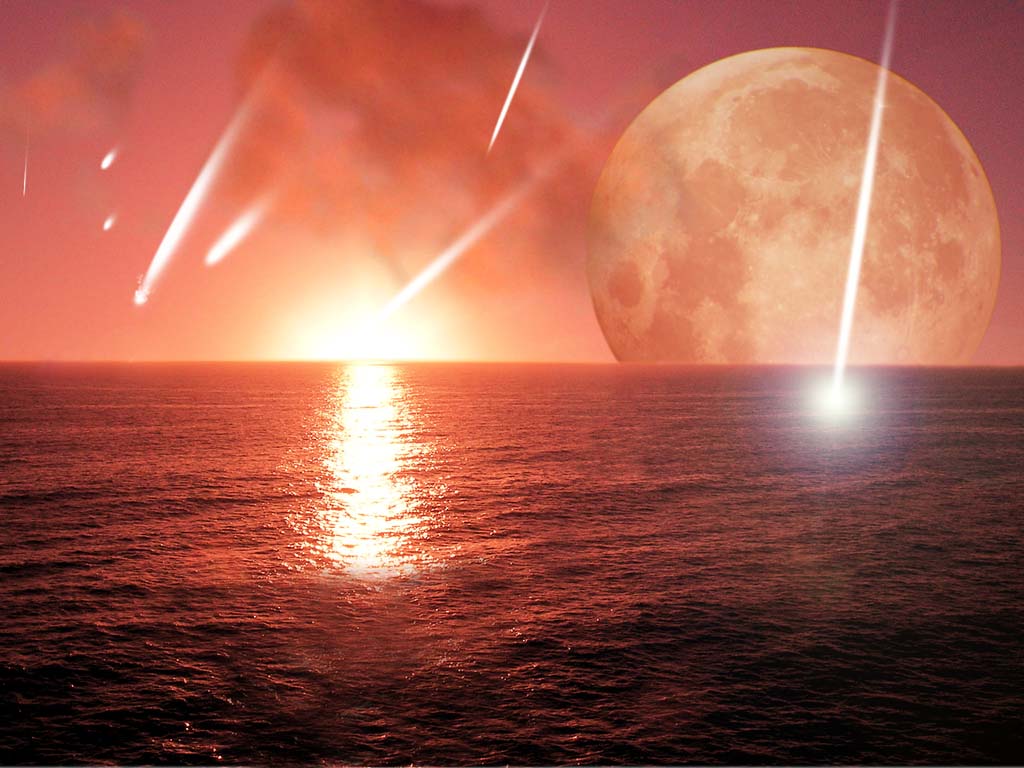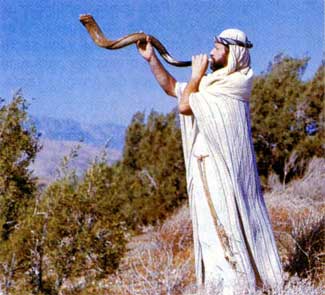But immediately after the tribulation of those days the sun will be darkened and the moon will not give its light and the stars will fall from the sky, and the powers of the heavens will be shaken. And then the sign of the Son of Man will appear in the sky... Matt. 24:29-30
The Hebrew language is highly mystical, symbolic and literarily beautiful. Letters are used for multiple purposes, such as numbers and symbols. The language is replete with play-on-words and layers of meaning. This is especially important to keep in mind when we read the prophets and the genre of apocalyptic writings such as Daniel and Revelation. Often prophecies have dual or even more meanings and fulfillments. Last-days prophecies are overpopulated with these symbols via numbers and monsters and antichrists and heavenly catastrophes.
The Hebrew word used in Genesis for seasons is the exact same word used in Leviticus 23 for appointed times, therefore it directly connects the sun, moon and stars with Israel’s sabbath.
The Lord’s appointed times (Gen. 1: 14 “seasons”) which you shall proclaim as holy convocations. My appointed times (seasons) are these: For six days work may be done, but on the seventh day there is a sabbath of complete rest, a holy convocation. You shall not do any work; it is a sabbath to the Lord in all your dwellings. (Lev. 23: 2-3)
When God speaks about the darkening of the sun, moon and stars it is usually a portent of evil. "And when I extinguish you, I will cover the heavens and darken their stars; I will cover the sun with a cloud and the moon will not give its light. Eze. 32: 7 (See also Eccl. 12: 2.)
I have even called My mighty warriors, My proudly exulting ones, to execute My anger. The Lord of hosts is mustering the army for battle....to destroy the whole land. Wail, for the day of the Lord is near! It will come as destruction from the Almighty....Behold, the day of the Lord is coming, cruel, with fury and burning anger, to make the land a desolation; and He will exterminate its sinners from it. For the stars of heaven and their constellations will not flash forth their light. The sun will be dark when it rises and the moon will not shed its light. Thus I will punish the world for its evil and the wicked for their iniquity. (Isa. 13: 4-11)
Blow a trumpet in Zion, and sound an alarm on My holy mountain! Let all the inhabitants of the land tremble, for the day of the Lord is coming; surely it is near. A day of darkness and gloom, a day of clouds and thick darkness....Like a mighty people arranged for battle. Before them the people are in anguish. All faces turn pale...Before them the earth quakes, the heavens tremble, the sun and the moon grow dark And the stars lose their brightness....The day of the Lord is indeed great and very awesome, And who can endure it? Joel 2: 1-11.
Proclaim this among the nations: Prepare a war...Put in the sickle, for the harvest is ripe. Come, tread, for the wine press is full; The vats overflow, for their wickedness is great. Multitudes, multitudes in the valley of decision! For the day of the Lord is near in the valley of decision. The sun and moon grow dark And the stars lose their brightness. Joel 3: 9-15.
These signs were for their day, to be fulfilled in one generation. And the signs began at the Cross. Luke tells us that the sun was obscured. (Luke 23:45). Yet, we must be very careful not to take these symbols too literally. They meant something far more important. They meant that the Jewish Temple system and the Old Testament prophecies had been fulfilled. The great and terrible day of the Lord had come and and the Jews were now being judged.
Peter’s sermon in Acts 2 relates Joel's prophecy of the sun, moon and stars falling to their time. It was the end of Israel’s world and it had come to pass in less than forty years. In AD 70, Roman soldiers destroyed Jerusalem and the temple. Hundreds of thousands of God’s people were massacred. Israel connected this war with the Messiah’s arrival. When those on Jerusalem’s walls watched the Roman’s artillery lobbed in their direction, they cried out, “The son cometh!” (Josephus, The Wars of the Jews, Book 5, Chapter 6.)
When the Temple fell, it was so great a fall that symbolically the heavens and their liturgical calendar fell with it. The Sabbaths were swept away with God’s wrath. The seasons of the sacred assemblies, portrayed as the vanishing of the sun, moon and stars, could never again return. For there was no temple for Holy Convocations, no temple for worship with its offerings and sacrifices. No longer could fresh wine be put into old wineskins.
Scholars suggest that when Jesus commanded His followers to flee Jerusalem at its destruction, He was not simply meaning to run to another city but flee the whole system of Judaism. The law and prophets had been fulfilled in Christ.














